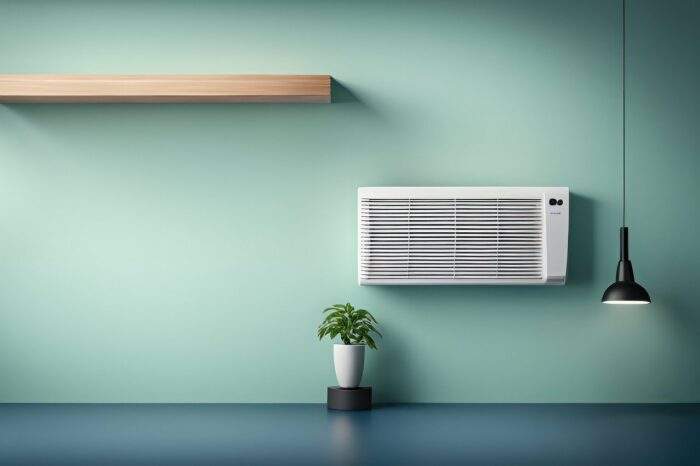The Impact of Air Conditioning on Health and Well-being

In recent decades, air conditioning has become ubiquitous in homes, offices, schools, and other indoor spaces, offering respite from sweltering temperatures and creating comfortable environments year-round. While the benefits of air conditioning are undeniable, it’s essential to consider its impact on health and well-being comprehensively. In this blog, we’ll delve into the effects of air conditioning on various aspects of health and explore ways to maximize its benefits while minimizing potential drawbacks.
Temperature Regulation and Comfort
One of the primary functions of air conditioning is temperature regulation, particularly during hot weather. Maintaining a comfortable indoor temperature is essential for preventing heat-related illnesses such as heat exhaustion and heatstroke, especially among vulnerable populations like the elderly, children, and individuals with certain medical conditions. By providing relief from extreme heat, air conditioning contributes to overall comfort and well-being, allowing people o carry out their daily activities without the discomfort and health risks associated with excessive heat exposure.
Improved Air Quality
In addition to temperature control, many air conditioning systems are equipped with filters designed to remove dust, pollen, pet dander, and other airborne pollutants from indoor air. These filters help improve indoor air quality by capturing and trapping particles that can trigger allergies, asthma, and other respiratory problems. For individuals with respiratory issues or sensitivities to airborne allergens, high-quality air conditioning systems can provide significant relief and contribute to better overall health.
Enhanced Productivity and Performance
Comfortable indoor environments created by air conditioning can have a positive impact on productivity and performance. Research has shown that people tend to perform better and feel more alert in comfortable temperatures, leading to increased focus, efficiency, and productivity in both professional and academic settings. By creating an optimal working and learning environment, air conditioning plays a vital role in supporting cognitive function and task performance, ultimately contributing to overall well-being and success.
Reduced Humidity Levels
In addition to cooling the air, air conditioning systems also remove excess humidity from indoor spaces, helping to create a more comfortable and healthy environment. High humidity levels can promote the growth of mold and mildew, which can exacerbate allergies, asthma, and other respiratory issues. By controlling humidity levels, air conditioning helps prevent moisture-related problems and creates a drier, more comfortable indoor atmosphere.
Better Sleep Quality
Adequate sleep is essential for overall health and well-being, and air conditioning can play a significant role in promoting better sleep quality. Maintaining a cool, comfortable sleeping environment is conducive to falling asleep faster and staying asleep longer, leading to improved rest and overall health. By creating optimal conditions for sleep, air conditioning contributes to better physical, mental, and emotional well-being.
Potential Health Risks and Considerations
While air conditioning offers numerous benefits, it’s essential to be aware of potential health risks and considerations associated with its use. Poorly maintained air conditioning systems can harbor mold, bacteria, and other contaminants, which may exacerbate respiratory problems or cause allergic reactions in sensitive individuals. Additionally, prolonged exposure to cold air from air conditioning can lead to dry skin, irritation of the eyes and respiratory tract, and discomfort for some people.
To mitigate potential health risks and maximize the benefits of air conditioning, consider the following tips:
- Regular Maintenance: Schedule regular maintenance for your air conditioning system to ensure that filters are clean and functioning correctly and that the system is free of mold and other contaminants.
- Proper Ventilation: Ensure adequate ventilation in indoor spaces by opening windows periodically to allow fresh air to circulate and prevent the buildup of stale indoor air.
- Humidity Control: Use a dehumidifier in conjunction with your air conditioning system to maintain optimal humidity levels indoors and prevent mold growth and moisture-related problems.
- Temperature Moderation: Avoid setting the thermostat too low, as excessively cold temperatures can lead to discomfort and potential health issues. Aim for a comfortable indoor temperature that promotes well-being without over-cooling.
- Air Quality Monitoring: Consider investing in an air quality monitor to track indoor air quality and identify any potential issues or areas for improvement.
Air conditioning plays a significant role in promoting health and well-being by providing relief from extreme temperatures, improving indoor air quality, and creating comfortable environments for living, working, and sleeping. By understanding its effects and implementing appropriate measures to mitigate potential risks, we can enjoy the benefits of air conditioning while safeguarding our health and well-being now and in the future.





